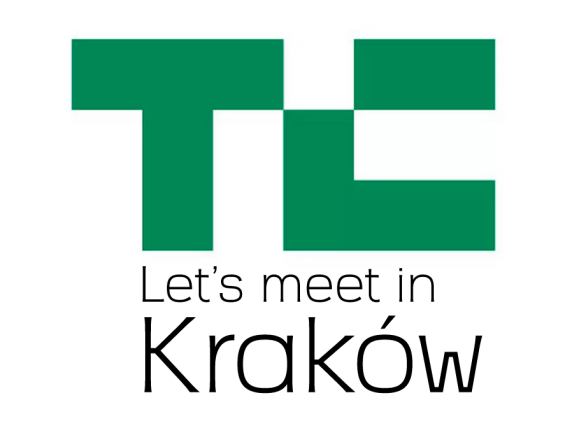Fintech (financial technology) is one of the leading categories of start-ups. Fintech covers a wide range of products and services, including: cybersecurity, big data, payments, crowdfunding, Bitcoin and P2P lending. Most start-ups are working to disrupt the banking sector. These are the five Polish fintech start-ups to watch
The Polish fintech ecosystem is still quite young. However, there have already been some interesting developments. Along with Transferwise, Azimo has been named a fintech start-up to watch. Zencard was one of 12 startups from the V4 region to participate in the Visegrad Startups competition in Silicon Valley. More information about them and others below.
Atsora: app for efficient management
Atsora provides strategic management and entrepreneurial tools for financial institutions, as well as small and medium-sized enterprises. Their flagship product is Momentum, a piece of software that is placed between the Small & medium-sized enterprises and the bank. It is an integrated online and mobile application used for planning business models that monitors cash flow and growth based on financial data. Users can easily share selected information with the bank in order to get tailor-made offers and real-time support.
The SME receives a complimentary set of functionality helping with cash flow, business model planning, cost optimization and client profitability management. Everything seamlessly integrates with bank accounts, providing a real-time view on business. The bank in turn gets better insight and can deliver the products exactly as needed. They support all the phases of the SME life cycle in order to improve cross selling and proactively manage retention.
Atsora are marketing themselves directly to a variety of businesses (B2B) by going through financial institutions, other fintech companies and platforms. Recently, they participated in the 2015 edition of Fintech Innovation Labs in London. This will allow them to connect with some of the top fintech experts in their global expansion ambitions.
Azimo: Affordable money transfers for everybody
Azimo allows migrant workers to make fast, simple low cost money transfers to their family members in over one hundred countries. They operate online and help customers save 85 percent of what they’d pay a high street bank or an online money transfer company. Based in London and Krakow, they are aiming to disrupt the industry dominated by legacy players Western Union and Moneygram. Their value proposition is the fact that they offer their services on mobile and to a population often overlooked by the tech sector - migrant workers.
The first to feature full Facebook integration, excellent for KYC (Know Your Client) purposes and convenient for users of the uber-social network to send money to one another, Azimo is also the cheapest – charging on average 2 percent instead of the 9.5 percent which is the industry standard.
Last month they finished their fund raising round B of $20 million at a $100 million valuation. The round of investment was lead by Frog Capital and MCI Management.
PricePanorama: Sort out your prices
Managing an online shop is difficult when you are isolated from the market. If you do not investigate the market environment, you cannot know if your offer is competitive. This is particularly important because pricing policy is one of the cornerstones for a competitive advantage in Polish e-commerce. There are many methods to check the prices of products from competitors, the most popular of which is of course to visit the store and check out the prices of products that interest us. However, keeping track of the prices in every store in the sector it would be really time consuming.
PricePanorama is a system of monitoring and analyzing the prices and availability of products on the internet using a SaaS model. Their main goal is to give you the opportunity to build a consistent pricing policy and to find markets abroad where you can start your business through competitive pricing and cost structure.
They already monitor many of the markets in Poland and are expanding to the Czech Republic, Russia, Ukraine, Turkey and Vietnam. They are looking to be ubiquitous in the e-commerce sphere and provide companies information about pricing and the availability of products from online stores.
VoicePin: Identify yourself with voice
VoicePin is providing the least invasive way to verify your identity - through your voice. They are the first company of its kind in Europe, and their service has been accredited by international biometric organizations.
Your voice is as unique as your fingerprint. Like snowflakes, no two voices are 100 percent identical, even with twins. To utilize this, VoicePin takes advantage of something that is already in your phone, the microphone. Most smartphone mics are sensitive enough to take advantage of this technology. This means implementing the service into your offering is cost-effective.
The value in voice verification is that it is language independent. This means implementation across international borders is streamlined, and I can use the same English phrase to identify myself no matter where I go. With VoicePin’s proprietary software, it can differentiate the intonation and the unique intangible characteristics of the user’s voice from others even if the user has laryngitis. The system requires a person to actually talk into the microphone, which means you cannot record another person’s voice and play it back.
VoicePin has already been implemented in some major banks and businesses in Poland, such as ING Bank and Tauron Energy. The applications can range from identification verification for e-banking and m-commerce to verifying permission to enter a house and even some IoT applications involving voice commands. This August, VoicePin will officially launch in New York City at the SpeechTek conference. With 20 years under its belt, SpeechTEK has become a must-attend event for anyone who wants to learn about deploying speech technology for business applications. Attendees will have a chance to test out their technology.
ZenCard: Make your clients stay
After being selected for Google’s Campus Exchange programme, and picking up a prize at the latest V4 Startups competition in Silicon Valley, ZenCard is flying high. They recently raised two million euro in funding. They are a real-time loyalty redemption platform that allows retailers to develop targeted offers based on customer purchase behavior profiles. They turn existing payment cards into universal loyalty & rewards cards. ZenCard is an omni-channel solution that solves one of the biggest problems of modern businesses – how to make people come back. How to turn one-time shoppers into regulars?
Their unique features include integration with payment terminals by removing all of the barriers for people to sign up to the loyalty and rewards program, therefore increasing the number of involved customers threefold compared to typical plastic card/app based systems. Their system works the same way on both e-commerce and in physical retail stores, and they also support non-monetary rewards, not only discounts.
Even though the Polish fintech space is quite young, it has already gained some accolades internationally. With the rising popularity of the fintech sector, we can expect more from these and other up and coming Polish fintech start-ups.
Thank you for reading another one of my posts done just for you! If you liked what you read please share it by using one of the buttons up top and check out other posts in this blog. I don’t want you to miss out on future posts so please follow me on Twitter @Eurodude23. If you haven’t done it already, please like my Facebook fan page by clicking here! See you next time!
This is a repost with permission from an article that originally appeared on web.gov.pl.



























/?width=260&height=234)

